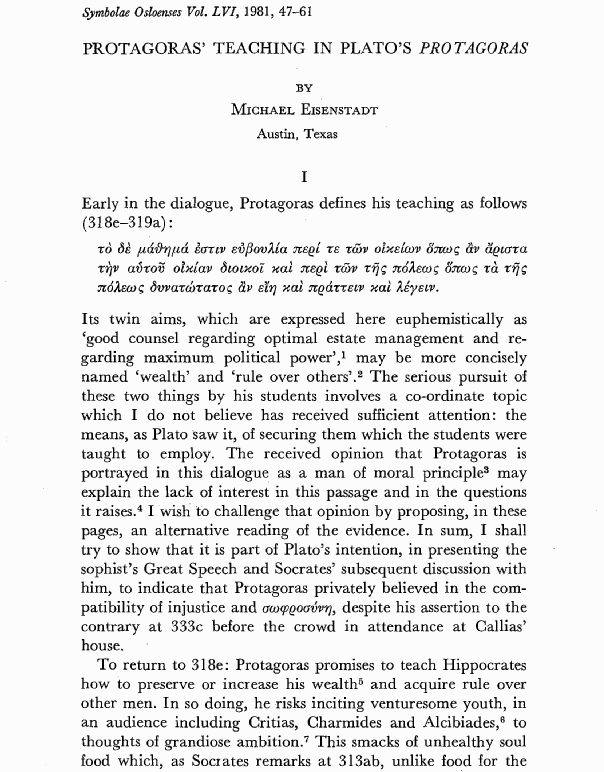
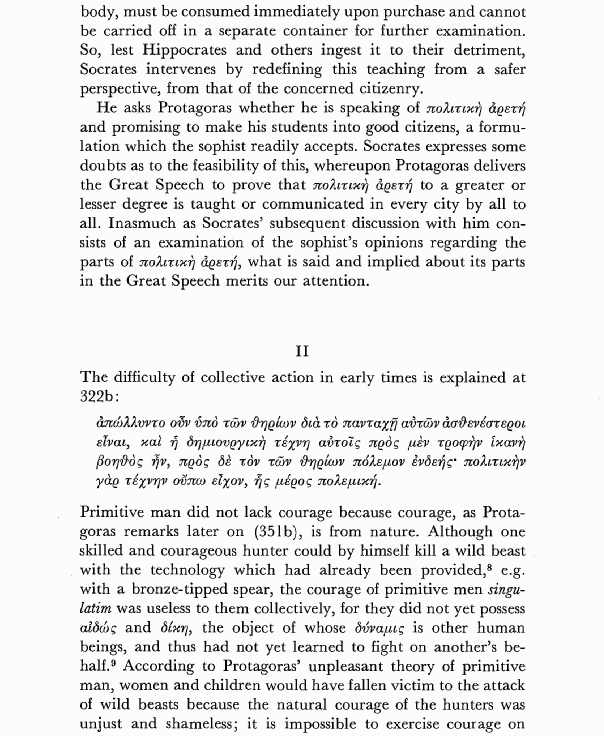
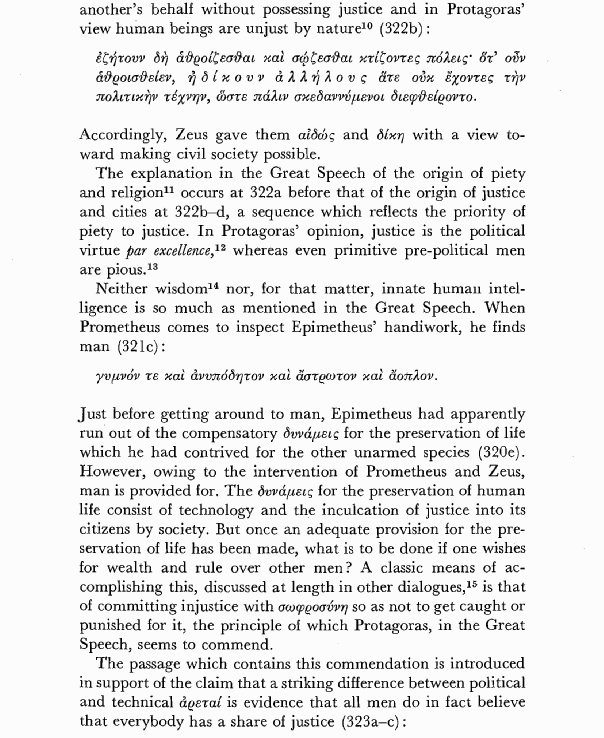
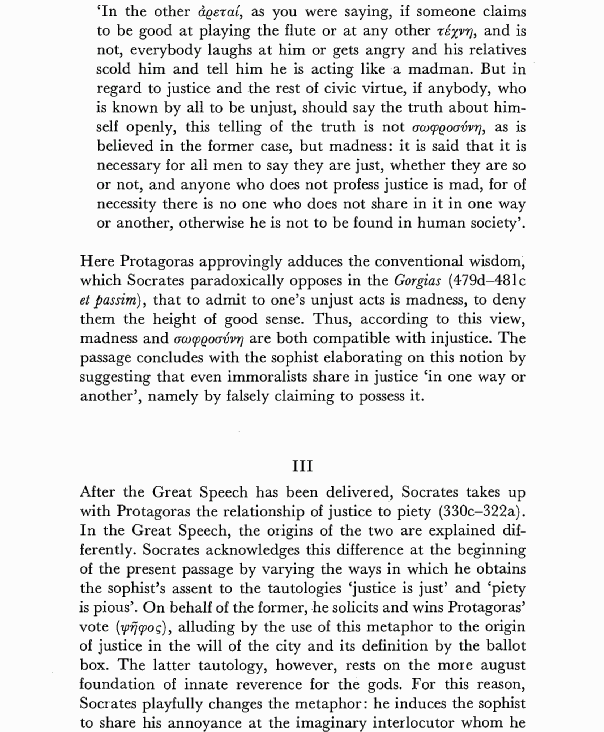
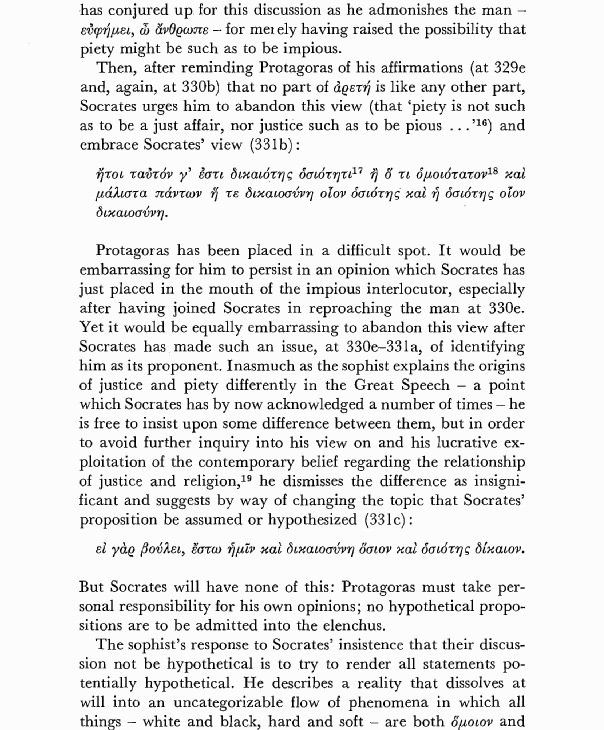
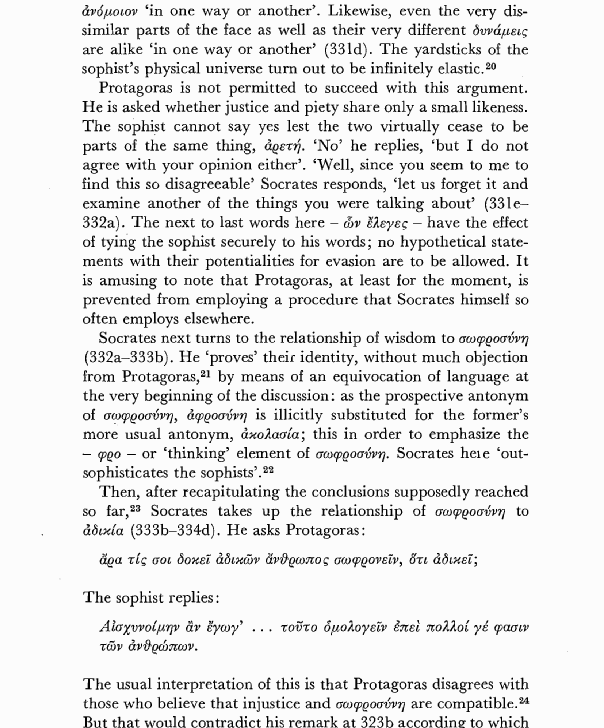
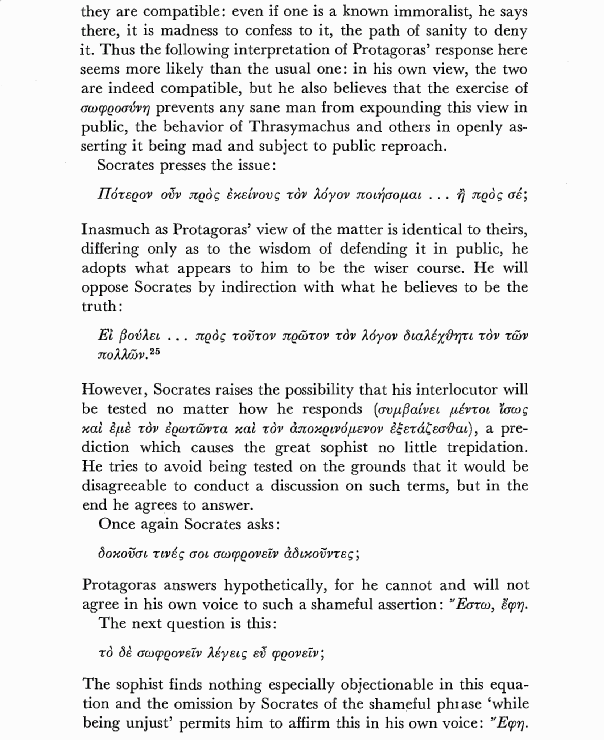
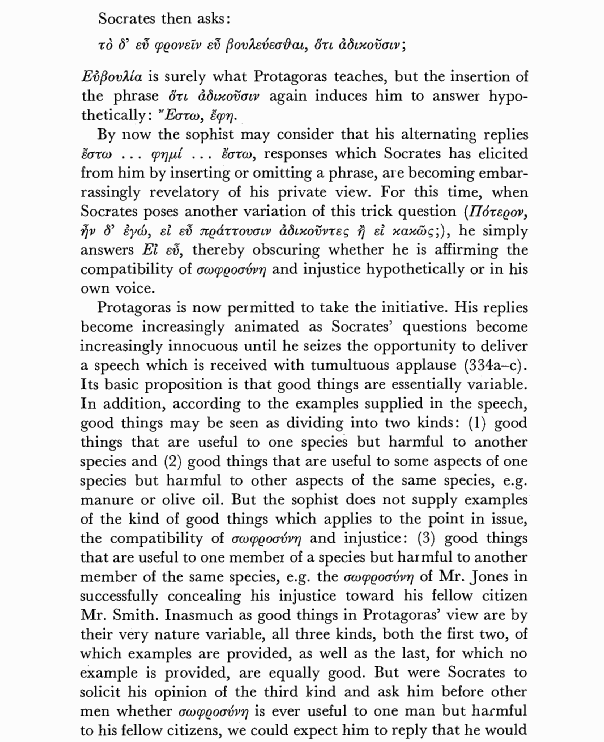
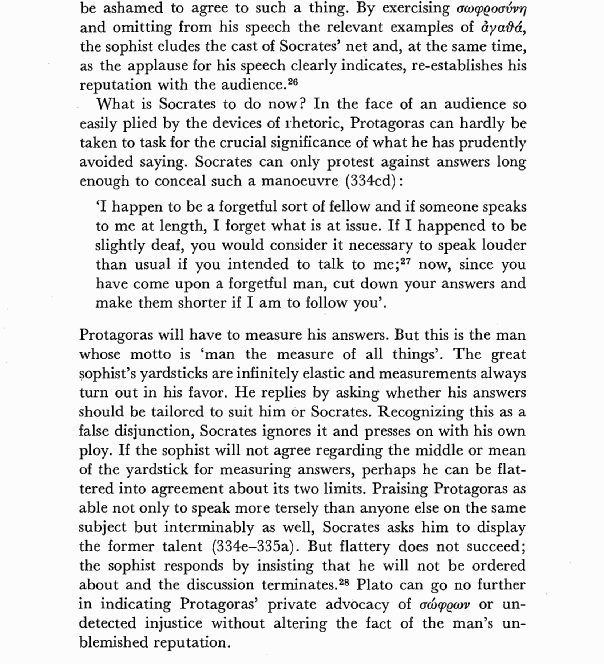
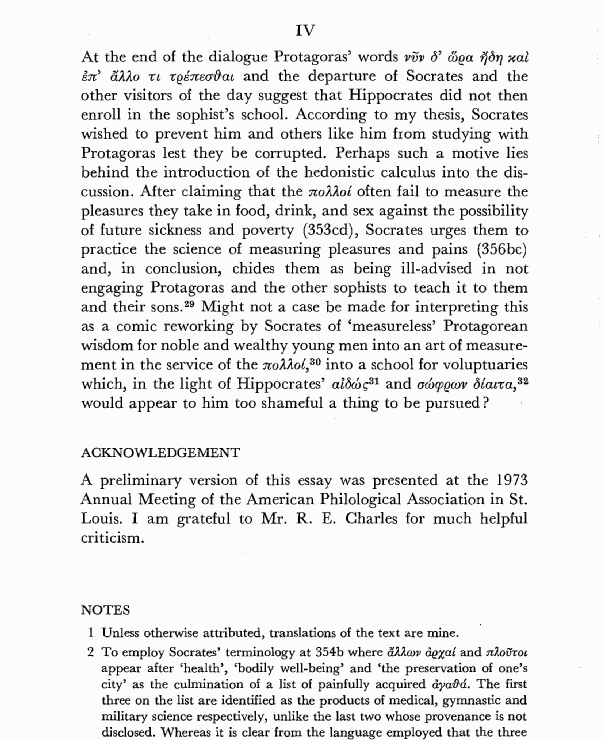
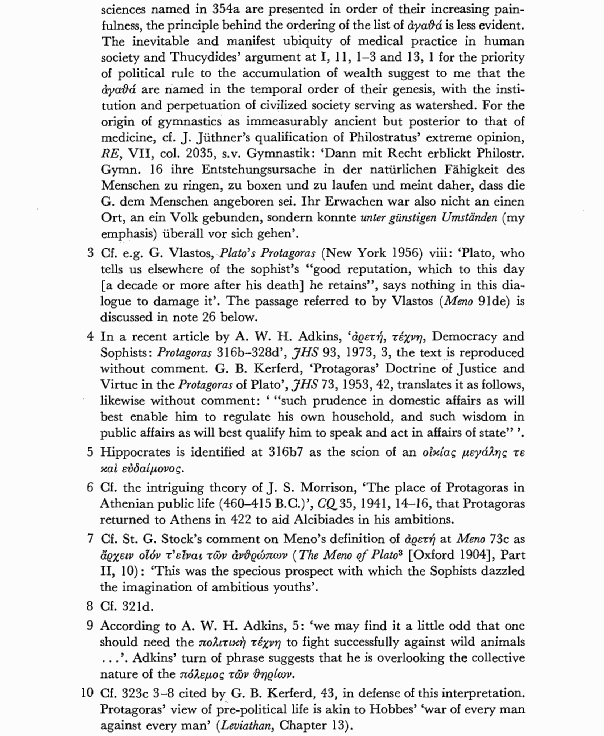
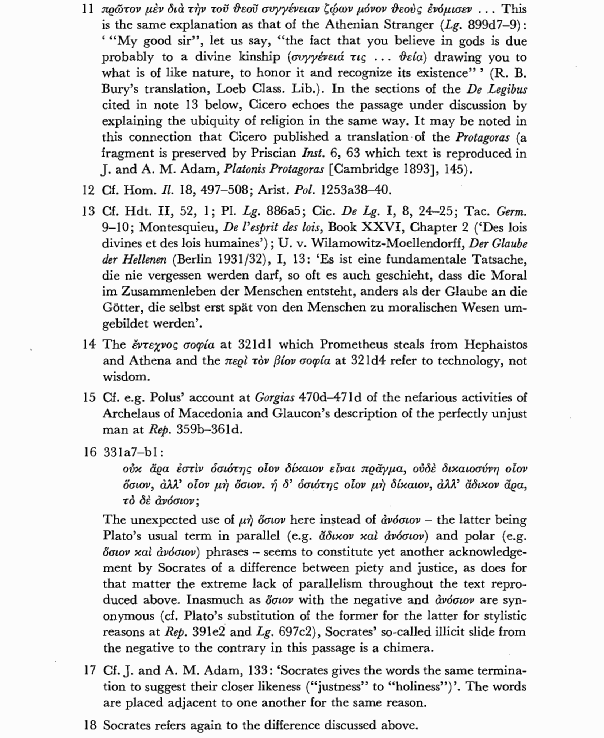
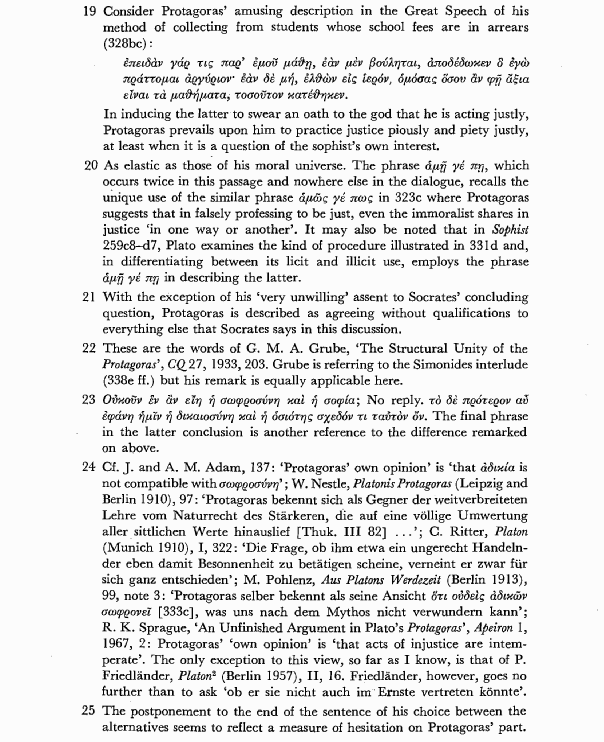
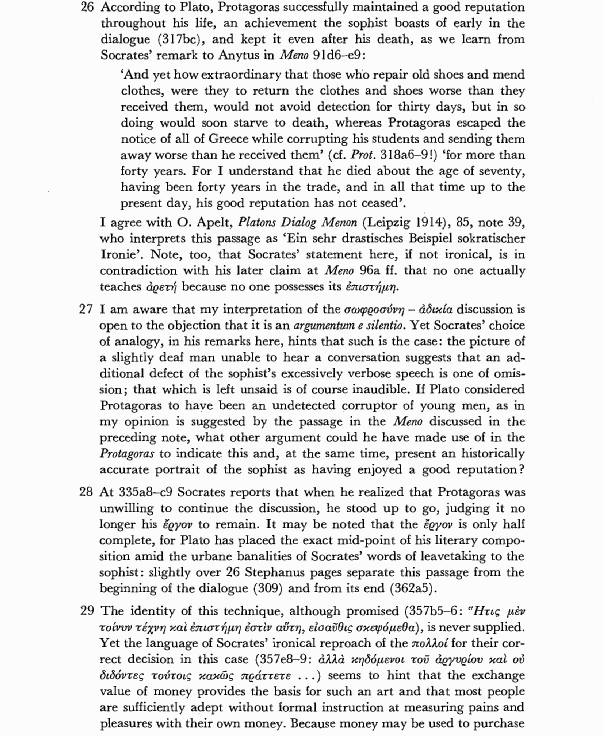
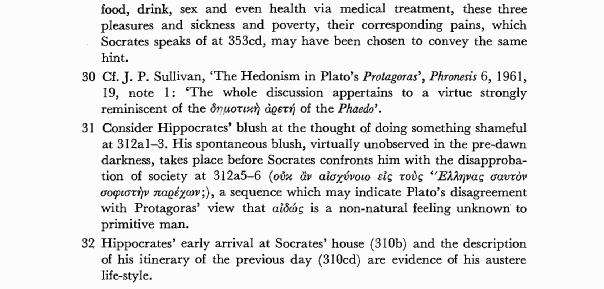


Symbolae Osloenses Vol. LVI, 1981, 47-61
PROTAGORAS' TEACHING IN PLATO'S PROTAGORAS
BY
MICHAEL EISENSTADT
Austin, Texas
I
Early in the dialogue, Protagoras defines his teaching as follows (318e-319a):
[see Greek text reproduced above]
Its twin aims, which are expressed here euphemistically as 'good counsel regarding optimal estate management and regarding maximum political power',1 may be more concisely named 'wealth' and 'rule over others'.2 The serious pursuit of these two things by his students involves a co-ordinate topic which I do not believe has received sufficient attention: the means, as Plato saw it, of securing them which the students were taught to employ. The received opinion that Protagoras is portrayed in this dialogue as a man of moral principle3 may explain the lack of interest in this passage and in the questions it raises.4 I wish to challenge that opinion by proposing in these pages an alternative reading of the evidence. In sum, I shall try to show that it is part of Plato's intention, in presenting the sophist's Great Speech and Socrates' subsequent discussion with him, to indicate that Protagoras privately believed in the compatibility of injustice and sophrosyne, despite his assertion to the contrary at 333c before the crowd in attendance at Callias' house.
To return to 318e: Protagoras promises to teach Hippocrates how to preserve or increase his wealth5 and acquire rule over other men. In so doing, he risks inciting venturesome youth, in an audience including Critias, Charmides and Alcibiades,6 to thoughts of grandiose ambition.7 This smacks of unhealthy soul food which, as Socrates remarks at 313ab, unlike food for the body, must be consumed immediately upon purchase and cannot be carried off in a separate container for further examination. So, lest Hippocrates and others ingest it to their detriment, Socrates intervenes by redefining this teaching from a safer perspective, from that of the concerned citizenry.
[for remainder of article see text reproduced above]

















